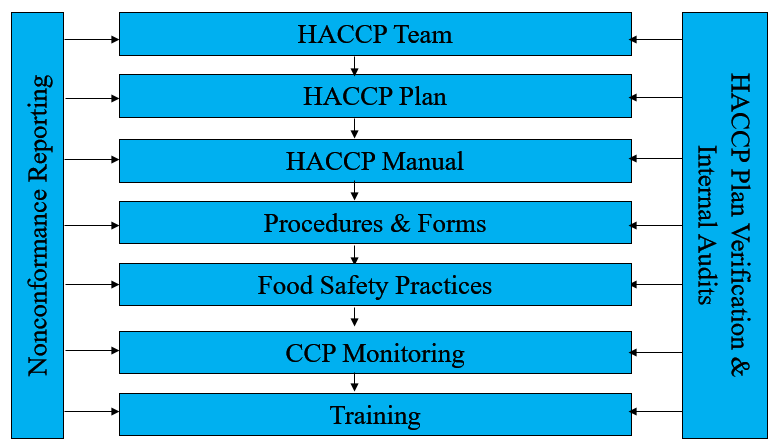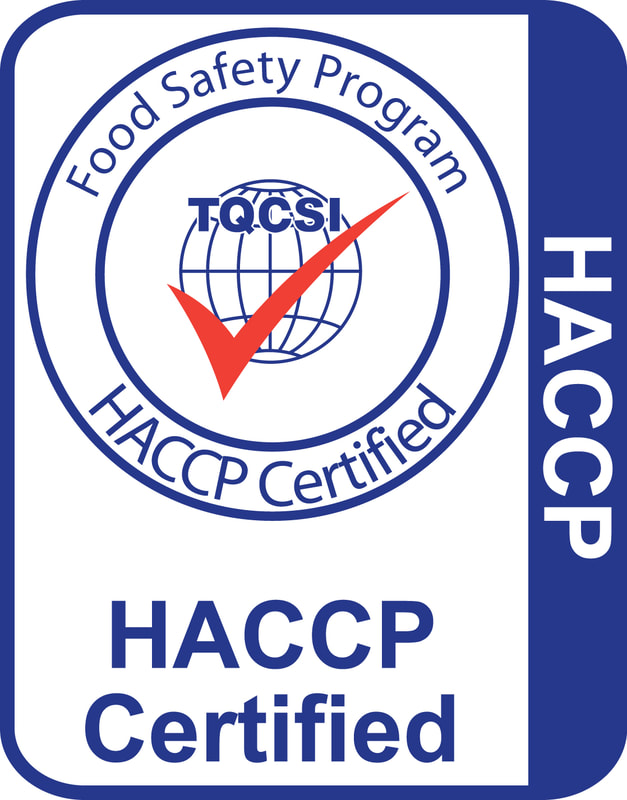TQCSI HACCP CODE - HACCP Food Safety Program
TQCSI’s HACCP Code for Food Safety Programs is based on the guidelines for Hazard Analysis and Critical Control Point (HACCP) published by CODEX Alimentarius. It specifies food safety requirements for use by organisations within the food and beverage industry to provide objective evidence of their capability to supply food or beverage which meets customer and legislative requirements.
It requires organisations to implement the simplest form of food safety management system by identifying potential hazards to food safety, risk assessing them and controlling those deemed critical. In the absence of an international standard for HACCP, TQCSI developed the Code following consultation with food safety specialists and regulators throughout Asia. It has been formally recognised by JAS-ANZ (one of only a handful of HACCP based codes to be registered by an accreditation body in the world).
It requires organisations to implement the simplest form of food safety management system by identifying potential hazards to food safety, risk assessing them and controlling those deemed critical. In the absence of an international standard for HACCP, TQCSI developed the Code following consultation with food safety specialists and regulators throughout Asia. It has been formally recognised by JAS-ANZ (one of only a handful of HACCP based codes to be registered by an accreditation body in the world).
HACCP Food Safety Program Requirements
A HACCP based Food Safety Program requires organisations to:
- appoint a HACCP Team
- develop and implement a HACCP Plan
- develop a HACCP Manual briefly addressing the clauses of the HACCP Code
- implement food safety practices
- develop and implement procedures, particularly for each of the critical control points
- implement record keeping for monitoring of the critical control points
- ensure staff are competent and understand their HACCP responsibilities
- control food safety nonconformances
- conduct internal audits of the food safety program.
Documentation Requirements
- HACCP Plan
- HACCP Manual
- Procedures
- Records for CCP monitoring
- Register for nonconformances.
Implementing a HACCP based Food Safety Program
Benefits of a HACCP Food Safety Program
- demonstrated due diligence by meeting regulatory and customer requirements
- enhanced company profile and reputation
- greater marketing opportunities
- minimised risk and reduce food hazards
- greater protection from spurious food poisoning allegations
- improved food safety performance
- competent and empowered employees.
TQCSI Certification Process
- contact your TQCSI Office and ask for a quote or apply on-line - TQCSI will need to know what your business does and how many employees (full time equivalent)
- to prevent delays, don’t wait until your Food Safety Program is fully implemented.
Certification Mark
Need Help?
Contact us here.


